FITZGERALD AND HEMINGWAY
Scott Donaldson
FITZGERALD & HEMINGWAY
 WORKS AND DAYS
WORKS AND DAYS 

COLUMBIA UNIVERSITY PRESS
NEW YORK

Columbia University Press
Publishers Since 1893
New York Chichester, West Sussex
cup.columbia.edu
Copyright 2009 Scott Donaldson
Paperback edition, 2011
All rights reserved
E-ISBN 978-0-231-51978-6
Library of Congress Cataloging-in-Publication Data
Donaldson, Scott, 1928
Fitzgerald and Hemingway : works and days / Scott Donaldson.
p. cm.
Includes bibliographical references and index.
ISBN 978-0-231-14816-0 (cloth : alk. paper)ISBN 978-0-231-14817-7 (pbk : alk. paper)
ISBN 978-0-231-51978-6 (e-book)
1. Fitzgerald, F. Scott (Francis Scott), 18961940Criticism and interpretation.
2. Hemingway, Ernest, 18991961Criticism and interpretation. I. Title.
PS3511.I9Z589 2009
924'/63dc22
2008049122
A Columbia University Press E-book.
CUP would be pleased to hear about your reading experience with this e-book at .
CONTENTS
I HAVE BEEN uncommonly lucky in the academic world. Armed with a doctorate in American studies from the University of Minnesota, I started teaching at the College of William and Mary in Virginia in September 1966. I shared an office on the third floor of the Wren Building, one of the oldest and handsomest college buildings in the United States. For nearly a month the rain coursed down through the huge trees outside my windowWilliam and Mary is a great campus for dendrophilesbefore the sun came out to brighten the late autumn days. Aside from the precipitation, I had very little to complain about.
As a beginning assistant professor of English, I was assigned two sessions of freshman composition, one of them meeting at eight A.M. Saturday. This was the scut work of the department and involved grading fifty papers a week and trying 1) to avoid placing sarcastic notations such as native speaker of English? in my marginal comments, and 2) to cajole students into writing in their own voice, instead of the wooden formal tones theyd been encouraged to adopt by well-meaning if clueless secondary school instructors. There were always a few in each class of twenty-five students (in later years reduced to fifteen) who caught on at once, to our mutual delight. Besides, in my other two courses, I could talk about stories and novels and poems and plays and get paid for it. It seemed wrong somehow.
In the mid-1960s, William and Mary was converting itself from a sleepy Southern college to a vibrant small university. Many of my new colleagues came there with degrees from the Ivy League and the best state universities. We bonded as the advance guard, eager to speed the transformation. And by and large the students we had the privilege of teaching were excellent. W&M is a state university (a fact not many people are aware of) and hence more affordable than almost any private college, and it was the first state institution on the East Coast to become coeducational. The legislators of Virginia wisely decided to limit the colleges size and to admit a number of students from out-of-state. In practical terms, this meant that many bright young people from Virginia and the eastern states competed for a limited number of spots in each freshman class.
In the uproar of the late 1960s, tensions sprang up at William and Mary as on most of the nations campuses. The students were more liberal than their parents, who more or less expected the college to look after their young as if at an extended summer camp. The new recruits to the faculty were more liberal than the students and often found themselves at odds with a conservative administration happy to operate in loco parentis. It made for lively times.
Unlike most of my colleagues, I had already spent a decade in the real world, earning my way as a newspaper reporter and editor. This meant that I was equipped to write about the authors whose work interested me in language most readers could understand and accustomed as a professional to getting those words down on paper. This gave me a leg up the ladder, and my fascination with a few important American writers gave me plenty to write about. I spent twenty-eight years at William and Mary, minus time off here and there for senior Fulbrights and visiting fellowships, as well as research grants from the National Endowment for the Humanities and the college itself. During most of that time I was allowed to teach the work of F. Scott Fitzgerald and Ernest Hemingway, both in survey courses and, more intensively, in upper-division and M.A.-level seminars. So I deepened my understanding of these authors as part of my regular teaching duties, and one can hardly overestimate what you can learn from intelligent and interested students. And I was fortunate, too, that journals and quarterlies and collections were willing to publish what I had to say. When I left the newspaper business, allotting three years to obtain a Ph.D., it was with the hope that in due course I might write things that would not be used to wrap the fish in, next day or next week. That worked out splendidly.
Looking through my c.v., I discover that over the past four decades I have published three biographies, edited (and contributed pieces to) three volumes of criticism, and written forty-two articles on Fitzgerald and Hemingway. The biographies are By Force of Will: The Life and Art of Ernest Hemingway (1977); Fool for Love, F. Scott Fitzgerald (1983); and Hemingway vs. Fitzgerald: The Rise and Fall of a Literary Frinedship (1999). The edited volumes are Critical Essays on F. Scott Fitzgeralds The Great Gatsby (1984); New Essays on A Farewell to Arms (1990); and the Cambridge Companion to Hemingway (1996). The articles, like the books, are spread out evenly over the forty-year period, about half appearing in the 1970s and 1980s, and half in the 1990s and 2000s.
I am not through writing about these writers and their stories and novels. But in my eightieth year and with the encouragement of many colleagues, it is time to collect the best of what Ive so far set down on paper about them. Fitzgerald and Hemingway: Works and Days presents the twenty-four most important pieceseleven on Fitzgerald, thirteen on Hemingway. Almost all of these are drawn from the forty-two published articles. Twoone each on The Sun Also Rises and A Farewell to Armsare adapted from By Force of Will. One, written in 2006, appears here for the first time. The earliest article, Hemingways Morality of Compensation, was originally published in American Literature in 1971, later embedded in By Force of Will, and subsequently reprinted twice in studies of that novel. The most recent is the long 2006 essay on The Last Great Cause: Hemingways Spanish Civil War Writing that Ive withheld for publication in this book. In addition to the Morality of Compensation article, eight other essays included here have been reprinted in collections, some of them more than once: a testimony to their value both to students and teachers and the wider reading public. Fitzgerald and Hemingway: Works and Days makes available in one place significant insights into the life and work of two great American writersinsights that otherwise would have to be tracked down in separate places.
I undertook the project of collecting these essays with the innocent notion that they might simply speak for themselves. But others, notably Jackson Bryer, pointed out the virtue of shaping them into a new book, and of course they were right. So, to begin with, over a six-month period I substantially revised everything. Some of this was mechanical enough. The articles had to be converted into a single scholarly form, for example. Pieces written for literary quarterlies like the
Next page
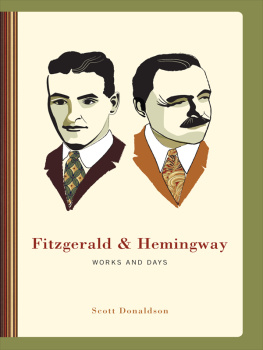
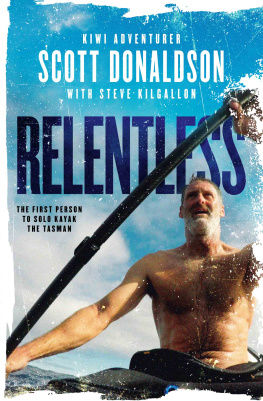
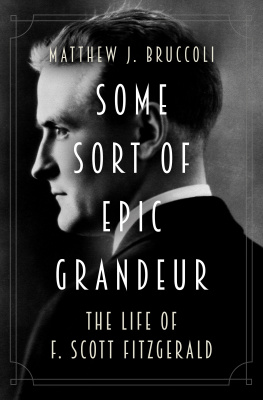
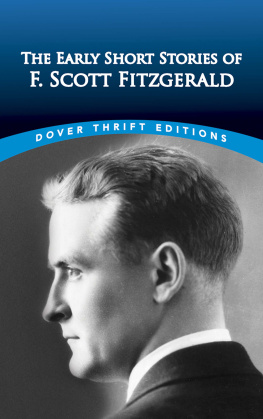


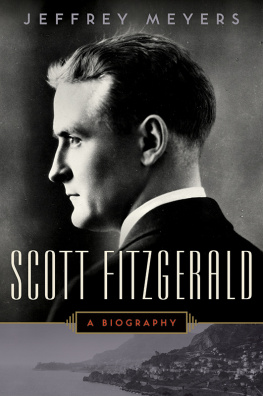
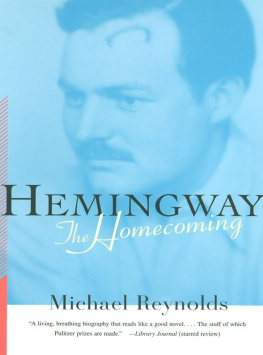
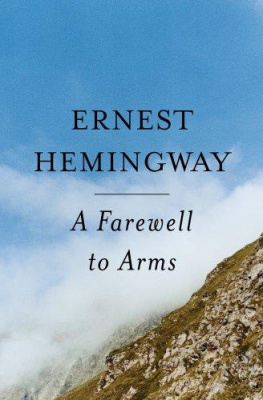
 WORKS AND DAYS
WORKS AND DAYS 
